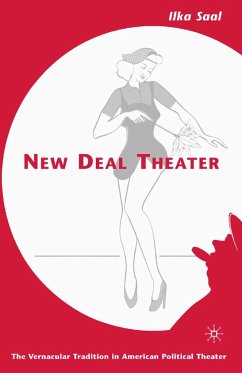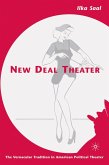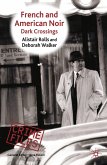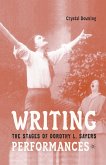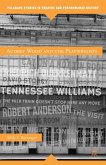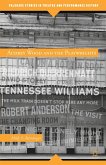New Deal Theater recovers a much ignored model of political theater for cultural criticism.While considered to be less radical in its aesthetics and politics than its celebrated Weimar and Soviet cousins, it nonetheless proved to be highly effective in asserting cultural critique. In this regard it offers a vital alternative to the dominant modernist paradigm developed in Europe. Rather than radicalizing content and form, New Deal theater insisted that the political had to be made commensurable with the language of a mass audience steeped in consumer culture.The resulting vernacular praxis emphasized empathy over alienation, verisimilitude over abstraction. By examining the cultural vectors that shaped this theater, Saal shows why it was more successful on the American stage than its European counterpart and develops a theory of vernacular political theater which can help us think of the political in art in other than modernist terms.
Winner of the2008 SAMLA Studies Award!
"Thisstudy will be a very important contribution to the field. What Saal does so well is to identify an American tradition she calls vernacular theater. It has often been described as a naive American theater tradition unworthy of comparison to its more sophisticated European contemporaries. Saal successfully identifies the complex and sophisticated reasons why the American stage chose a vernacular route, in the process of explaining its strengths and weaknesses with an intellectual sophistication that supports her sympathetic predecessors who have been less than fully successful at articulating the movement's roots, successes, and justifications.She is, in short, presenting what I would suggest is the final word on what has oft been thought but never so well expressed. This book is likely to find both a sympathetic readership while at the same time converting those among the scholarly theater community who have frequently turned away from American theater to study and engage European traditions often seen to be more interesting, dynamic, and politically/aesthetically engaging." - William W. Demastes, Louisiana State University
"For Saal, these theatrical movements - themselves tied to the political movements: the United Farm Workers and antiwar organizing - meld the American vernacular traditions with avant-gardist stagings, offering another way of conceiving modernism and arguing against U. S. government intervention into art." - Theater Survey
"Saal's analyses comprise rich material from rarely researched areas and will be important to the understanding of American political theater as well as to comparative approaches in theater studies of that subject" - Buchbesprechungen Book Reviews
"[A] superb study...It will certainly be of interest to both scholars of interwar theatre and drama and those who grapple with the vagaries of political theatre" - Theatre Journal
"New Deal Theater offers its readers a much needed and long awaited revision of political theater in the West." - South Atlantic Review
"Thisstudy will be a very important contribution to the field. What Saal does so well is to identify an American tradition she calls vernacular theater. It has often been described as a naive American theater tradition unworthy of comparison to its more sophisticated European contemporaries. Saal successfully identifies the complex and sophisticated reasons why the American stage chose a vernacular route, in the process of explaining its strengths and weaknesses with an intellectual sophistication that supports her sympathetic predecessors who have been less than fully successful at articulating the movement's roots, successes, and justifications.She is, in short, presenting what I would suggest is the final word on what has oft been thought but never so well expressed. This book is likely to find both a sympathetic readership while at the same time converting those among the scholarly theater community who have frequently turned away from American theater to study and engage European traditions often seen to be more interesting, dynamic, and politically/aesthetically engaging." - William W. Demastes, Louisiana State University
"For Saal, these theatrical movements - themselves tied to the political movements: the United Farm Workers and antiwar organizing - meld the American vernacular traditions with avant-gardist stagings, offering another way of conceiving modernism and arguing against U. S. government intervention into art." - Theater Survey
"Saal's analyses comprise rich material from rarely researched areas and will be important to the understanding of American political theater as well as to comparative approaches in theater studies of that subject" - Buchbesprechungen Book Reviews
"[A] superb study...It will certainly be of interest to both scholars of interwar theatre and drama and those who grapple with the vagaries of political theatre" - Theatre Journal
"New Deal Theater offers its readers a much needed and long awaited revision of political theater in the West." - South Atlantic Review

